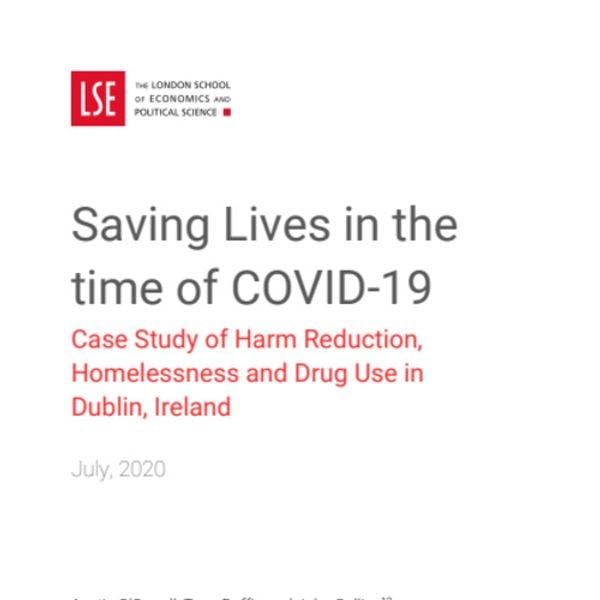Saving lives in the time of COVID-19 - Case study of harm reduction, homelessness and drug use in Dublin, Ireland
By Austin O’Carroll, Tony Duffin and John Collins
Dublin has outperformed even best-case scenarios for COVID-19 mortality among homeless and drug using populations. The experience provides important lessons for policy discussions on the pandemic, as well as broader lessons about pragmatic responses to these key client groups irrespective of COVID-19. The overarching lessons is that when government policy is well coordinated and underpinned by a science-driven and fundamentally pragmatic approach, lives are saved. Within this, the importance of strategic clarity and delivery, housing, lowered thresholds to methadone provision, Benzodiazepine (BZD) provision and Naloxone availability were key determinants of policy success. Further, given the rapid collapse in policy barriers to these interventions that COVID-19 produced, it is important to secure and protect these improved policy responses into the post-COVID19 era.
When the COVID-19 pandemic reached Dublin, homeless people were identified as a particularly vulnerable group due to their morbidity profile, living conditions and drug use behaviour. A key element of the health services’ strategy to protect homeless people from COVID-19 involved the expansion of harm reduction practices that resulted in improved access to methadone treatment; improved access to Naloxone; shifting the management of high dose BZD dependency towards maintenance therapy; and the home delivery of prescription drugs (like methadone and BZDs). Prior to COVID-19 all of these policy choices were limited by regulatory obstacles and uncertain political will. The response to the COVID-19 pandemic has demonstrated some of the unnecessary obstacles placed ahead of potentially lifesaving treatments. Further it has only served to reiterate the value and logic of harm reduction-based drug policies. The purpose of this policy briefing is to outline and explore those initiatives and to consider the future policy implications.
Downloads
Related Profiles
- Ana Liffey Drug Project
- LSE Ideas International Drug Policy Project
